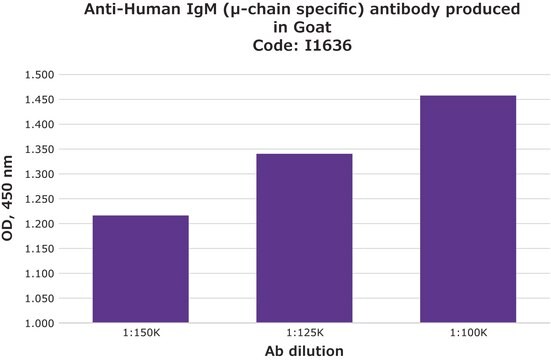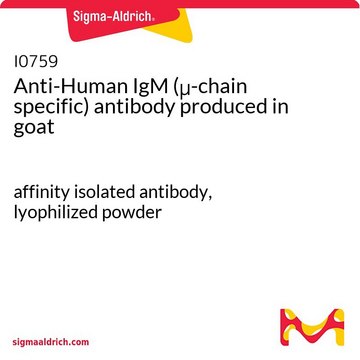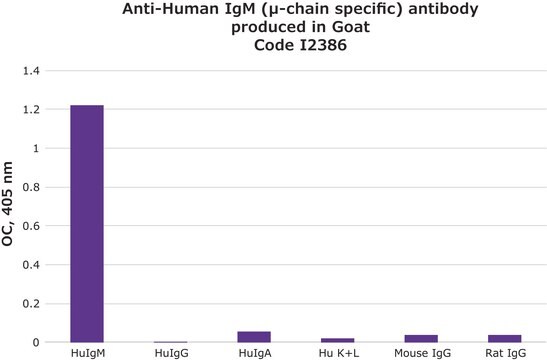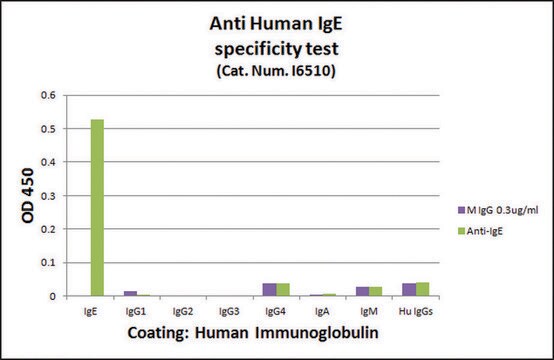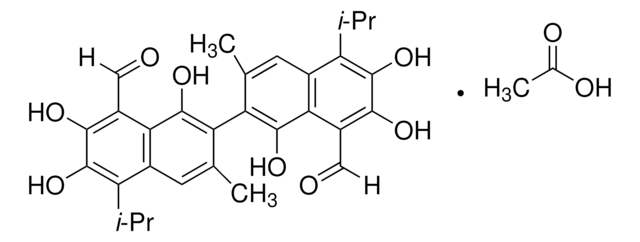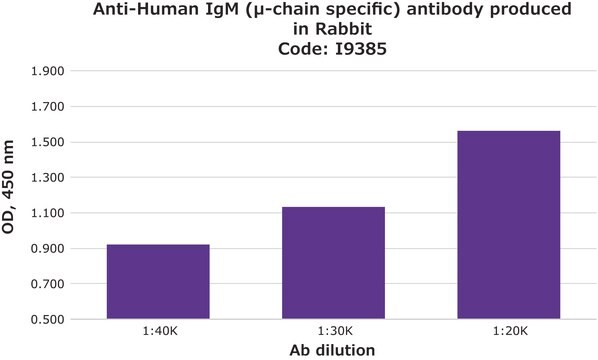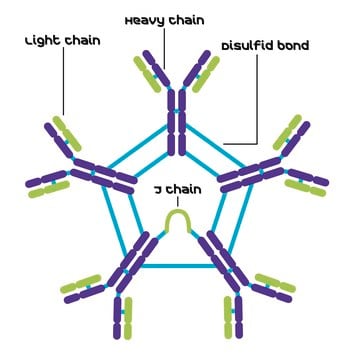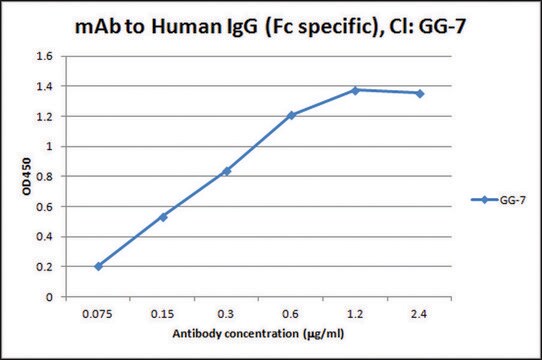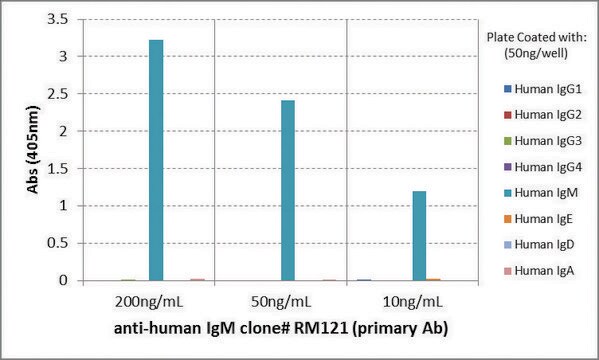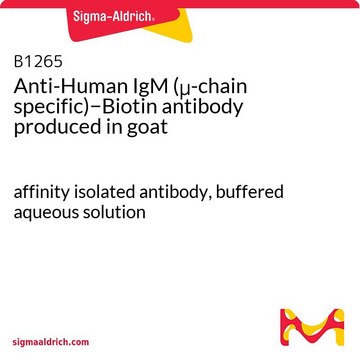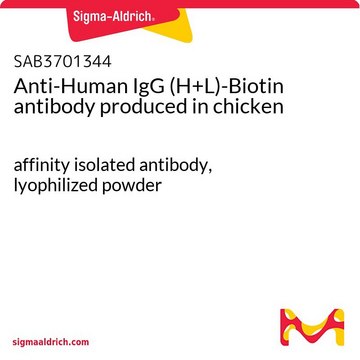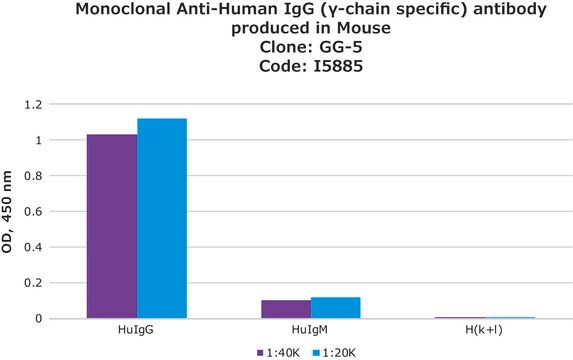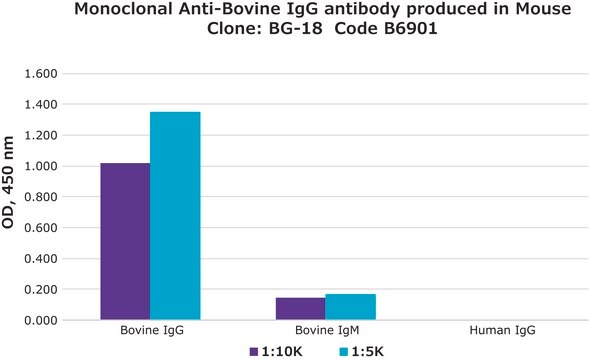I6385
Monoclonal Anti-Human IgM (μ-chain specific) antibody produced in mouse
clone MB-11, ascites fluid
Synonym(s):
Monoclonal Anti-Human IgM (μ-chain specific)-Alkaline Phosphatase, Anti Human IgM Antibody - Monoclonal Anti-Human IgM (μ-chain specific) antibody produced in mouse, Anti Human Igm Antibody
About This Item
Recommended Products
biological source
mouse
Quality Level
conjugate
unconjugated
antibody form
ascites fluid
antibody product type
secondary antibodies
clone
MB-11, monoclonal
contains
15 mM sodium azide
technique(s)
indirect ELISA: 1:5,000
isotype
IgG2b
shipped in
dry ice
storage temp.
−20°C
target post-translational modification
unmodified
Looking for similar products? Visit Product Comparison Guide
General description
Immunoglobulin M (IgM) antibodies appear early in the course of infections. IgM antibodies are responsible for agglutination of red blood cells in mis-matched blood transfusions. The level of IgM may vary with the status of disease or infection.
Application
Biochem/physiol Actions
Disclaimer
Not finding the right product?
Try our Product Selector Tool.
Storage Class Code
12 - Non Combustible Liquids
WGK
WGK 2
Flash Point(F)
Not applicable
Flash Point(C)
Not applicable
Certificates of Analysis (COA)
Search for Certificates of Analysis (COA) by entering the products Lot/Batch Number. Lot and Batch Numbers can be found on a product’s label following the words ‘Lot’ or ‘Batch’.
Already Own This Product?
Find documentation for the products that you have recently purchased in the Document Library.
Customers Also Viewed
Articles
Antibody-based serology tests are useful in identifying subjects with an adaptive immune response to the SARS-CoV-2 virus. Anti-human immunoglobulin antibodies allow for quick and simple, yet reliable assays with easy readouts and can also be adapted for high-throughput screening.
Our team of scientists has experience in all areas of research including Life Science, Material Science, Chemical Synthesis, Chromatography, Analytical and many others.
Contact Technical Service